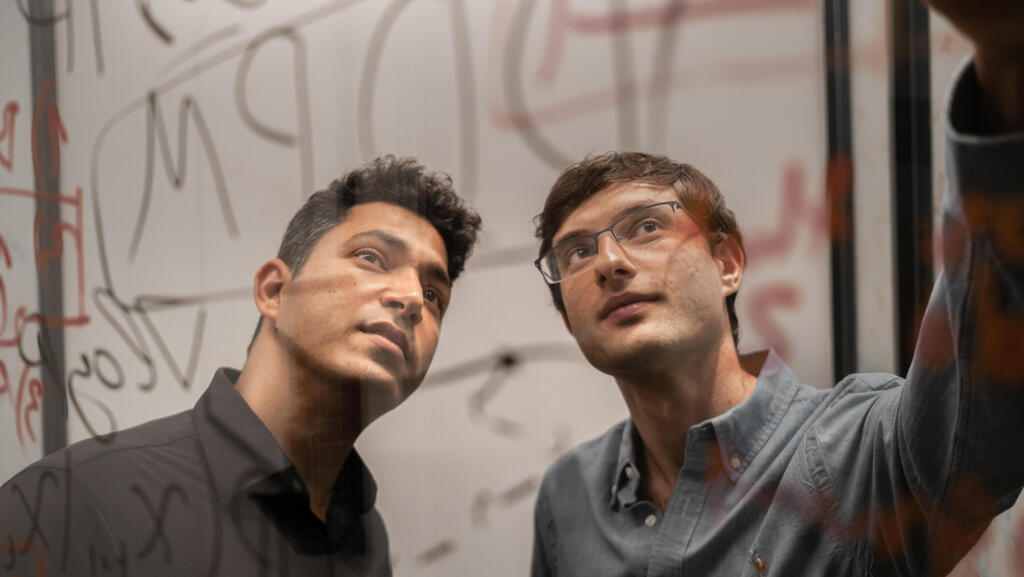
Decart hits $3.1 billion valuation on $100 million raise to power real-time interactive AI
The Israeli startup’s Mirage and Oasis models aim to cut GPU costs and bring human-like interaction to enterprise AI agents.
Artificial intelligence company Decart has raised $100 million at a valuation of $3.1 billion. In its previous funding round at the end of last year, the company was valued at significantly less than $1 billion. This is Decart’s third funding round in 11 months, bringing total investment to $153 million. Existing investors Sequoia Capital, Benchmark, and Zeev Ventures participated again, joined by Israeli venture capital fund Aleph and several prominent angel investors.
From stealth to $3.1 billion in less than a year
Full list of Israeli high-tech funding rounds in 2025
Despite raising $153 million to date, the company says it has used less than $10 million of investor capital. The company is funding its tens of millions in GPU compute costs through revenue. Decart was recently ranked first in Calcalist’s list of the 50 most promising Israeli startups.
“The company has two revenue streams,” said Dr. Dean Leitersdorf, co-founder and CEO of Decart. “The first is GPU acceleration, which currently generates tens of millions of dollars in revenue. The second is our new Mirage model, which enables companies in gaming, real estate, film, education, and other sectors to create live simulations.”
Leitersdorf sees Decart’s Mirage model as a breakthrough in how humans interact with machines: “Live video allows us to talk to computers visually in a way we’ve never experienced before. Mirage makes visual interaction with computers possible. Our responsibility is to make sure that everyone who invests, early and late, sees a significant return.”
Decart was founded in late 2023 by Dr. Dean Leitersdorf (CEO) and Moshe Shalev (CPO), both veterans of Israel’s elite Unit 8200. Over the past year, the company has grown from 15 to more than 60 employees, primarily in Tel Aviv, with additional teams in northern Israel, San Francisco, and New York.
Related articles:
“We know how to optimize GPUs, and we’d be happy to assist if the country builds a supercomputer,” Leitersdorf said. “Right now, we’re building the live video layer and preparing to launch it to customers. We expect to see significant sales within months. That’s the beauty of AI, huge companies can be built by small teams. Elon Musk’s xAI has only 400 employees. Anthropic is raising at a $170 billion valuation with just 1,500 people. These technologies are like magic. The only way to win is through small, lean, fast teams. The days of companies with hundreds of thousands of employees are over.
“AI makes us more efficient, we can work less and produce more. That means more free time. It’s a positive force for humanity.”
Decart has developed production-ready real-time video generation models that can scale to millions of concurrent users. The company's Oasis model, released in November 2024, was the world's first real-time video model, surpassing a million users within the first three days of the launch. This week's launch of MirageLSD, the second model in Decart's real-time video series, further solidifies the company's technical prowess. Currently, only Google, with its Genie 3 release, has demonstrated comparable capabilities.
Decart has generated revenue from day one through multi-million dollar contracts licensing its GPU optimization stack to cloud providers and AI laboratories. This same GPU proprietary optimization stack empowers Decart’s latest video generation models, enabling drastic cost reductions compared to the industry, reducing the cost per hour of generated content using video diffusion models from $10s-$1000s (such as $1,400 for the recent Google Veo 3 Fast model) to under $0.25.
As demand grows, Decart plans to launch an API for Mirage, which is expected to become a major growth engine alongside the company’s GPU acceleration business.
